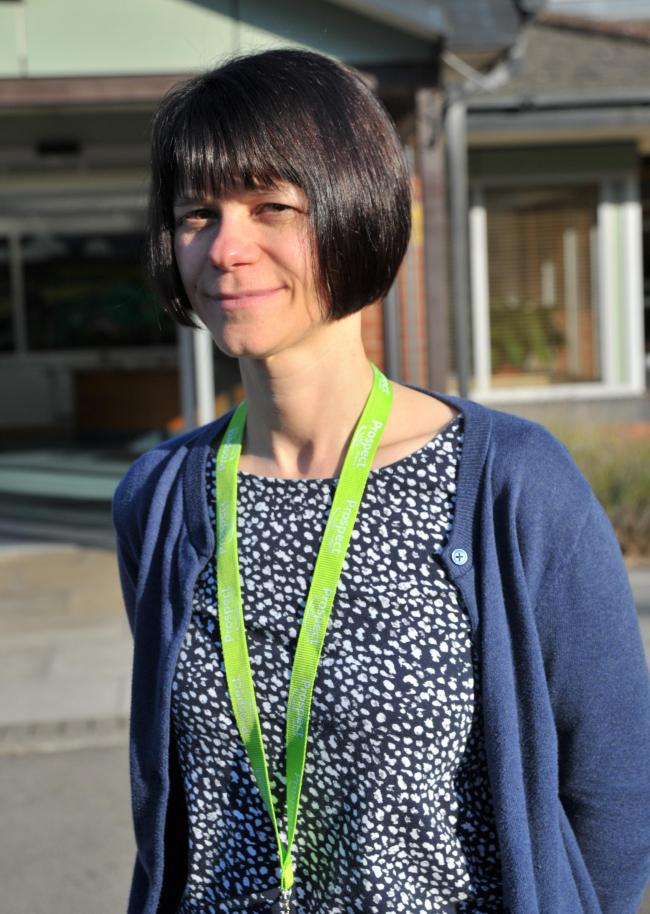
TALKING about dying is everybody’s business, says one of Prospect’s top nurses.
Conversations about death should start at school to ensure society generally is more comfortable speaking about the topic, nurse of 23 years Catherine Piggin said.
Report raises death conversation fear
Her comments followed a report by the Royal College of Physicians, which warned that doctors were not always comfortable speaking about death with terminally ill patients.
Their report, Talking About Dying, concluded healthcare professionals needed to speak to dying patients about a plan for their end-of-life care soon after they are given a terminal diagnosis. Prof Dame Jane Dacre, former president of the RCP, said: “Patients value and benefit from clear conversations about the end of life. These conversations are difficult, but we need to get better at having difficult conversations.”
'Healthcare professionals need to be more confident'
Difficult conversations are nothing new to Catherine Piggin, who has worked at the Wroughton-based Prospect Hospice for 17 years.
The experienced nurse agreed with the RCP’s findings that, for many in the health service, a terminal diagnosis could be taken as a personal failure: “I think within the healthcare profession, a lot of services’ focus is to care for patients or to make the situation better. Therefore, for some professionals when their patient isn’t going to get better it feels like a failure.
“A lot of it’s about confidence to have conversations [about end of life care]. Sometimes we get the language wrong. We use euphemisms for death and dying that make it even more uncertain.The evidence says patients welcome [conversations about palliative care]. One of the biggest fears for health professionals is that we’re going to cause the patients harm or distress.
“But if someone is living with an advanced and progressive illness, having the opportunity to talk about it, enables them to put some lines in place and feel like they have some sense of control.”

Catherine Piggin. Picture: DAVE COX
Prospect works with the hospital, GPs and care homes to offer shadowing, work placements and other training courses in having those sometimes difficult conversations about end of life care. Official documents like advance care plans, which set out the medical treatment a seriously or terminally ill patient wants to receive, are shared between carers, GPs and the hospital to make sure they get the right care.
Catherine said: “We try to encourage and give patients the opportunity to discuss their wishes for the future as early as possible.”
'Everyone's business'
Understandably, people are not always comfortable in speaking about their death. The signs they want to start that conversation could crop up at any time.
So, it is important that everyone supporting a patient, including family members, friends and carers, are able to spot the signs and feel confident in speaking about the topic, said Catherine.
“The important thing we try to promote here is that taking about death or dying is everybody’s business,” she added. “We would see it as our role to support professionals to enable them to have those conversations they need to have with people.”
Asked what would help her teams of nurses, Catherine suggested more people feeling confident in speaking about death: “The conversations and the talking about this could start in school or be part of wider society.”
Death cafés
Prospect runs regular Death Cafés, open to all and where people can mix with solicitors, funeral directors and counsellors. The idea of the cafés is to provide a space to talk about death - over tea and cake. The next Death Café is on November 20, 5.30pm-7.30pm.
End of life pilot project
The hospice is working with Great Western Hospital and Swindon NHS Clinical Commissioning Group on a project to improve end of life care. Around 1,590 are predicted to need the specialist palliative care in Swindon every year. CCG figures suggest that for a fifth of patients who die at GWH it is not known where they would preferred to have died.
The pilot will see even closer working between GPs, hospital doctors and nurses and palliative care teams at Prospect. A 24-hour team of nurses will give round the clock support. When the project was mooted earlier this year it was suggested it could result in savings of £780,000 to the NHS.



Comments: Our rules
We want our comments to be a lively and valuable part of our community - a place where readers can debate and engage with the most important local issues. The ability to comment on our stories is a privilege, not a right, however, and that privilege may be withdrawn if it is abused or misused.
Please report any comments that break our rules.
Read the rules hereLast Updated:
Report this comment Cancel